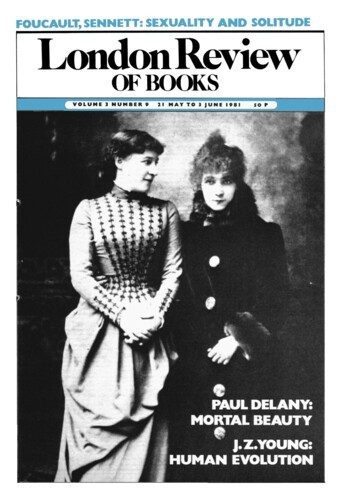Sexuality and Solitude
Michel Foucault and Richard Sennett, 21 May 1981
A few years ago, Michel Foucault and I discovered we were interested in the same problem, in very different periods of history. The problem is why sexuality has become so important to people as a definition of themselves. Sex is as basic as eating or sleeping, to be sure, but it is treated in modern society as something more. It is the medium through which people seek to define their personalities, their tastes. Above all, sexuality is the means by which people seek to be conscious of themselves. It is that relationship between self-consciousness, or subjectivity, and sexuality that we want to explore. Few people today would subscribe to Brillat-Savarin’s ‘Tell me what you eat, and I will tell you who you are,’ but a translation of this dictum to the field of sex does command assent: know how you love, and you will know who you are.

